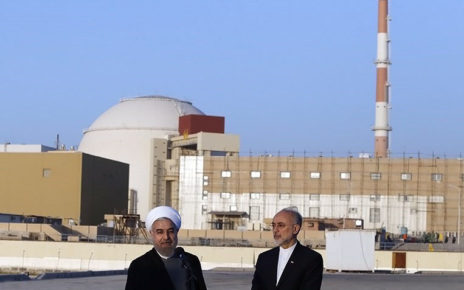In 2011, Syria collapsed into a state of violent chaos, becoming a graveyard to approximately 300,000 people in a mere four years. The civil war has created an exodus of more than 4 million Syrian refugees fleeing to Europe in droves, desperate to escape. The Syrian exodus is the worst refugee crisis that Europe has experienced since World War II, and has sparked an international state of emergency.
The world has a moral and humanitarian duty to assist refugees and a legal imperative to protect their human rights. For the most part, Europeans have been greeting Syrian refugees with kindness and compassion, and even finding innovative ways to help.
Some, however, are not as welcoming. Right-wing nationalist groups are capitalizing on public fear to promote an anti-immigration agenda, slamming refugees as a threat to national security and a burden on the local economy. The startlingly negative public perception of refugees is largely based on claims that they put a strain on host economies and fail to contribute to society. According to a 2008 survey, 44 percent of European citizens believed, inaccurately, that migrants drain more from public funds than they
are not as welcoming. Right-wing nationalist groups are capitalizing on public fear to promote an anti-immigration agenda, slamming refugees as a threat to national security and a burden on the local economy. The startlingly negative public perception of refugees is largely based on claims that they put a strain on host economies and fail to contribute to society. According to a 2008 survey, 44 percent of European citizens believed, inaccurately, that migrants drain more from public funds than they
contribute. Under increasing public pressure, the European Commission announced on September 10 that it will “weigh the economic cost of the refugee crisis, as concern grows over the effects on national budgets of hosting tens of thousands of refugees.”
Some of the negative perceptions surrounding Syrian refugees can be attributed to cultural and religious discrimination, xenophobia and Islamophobia, particularly in countries like Hungary, Poland, Slovakia, and Czech Republic. These countries have historically had fewer immigrants from the Middle East and North Africa, and see a flood of non-Christian migrants as a threat to their cultural identity and values. In more multicultural countries, public anxiety over refugees is rooted less in xenophobia and more in fiscal concerns like rising taxes, competition for jobs, and overwhelmed healthcare systems and social services.
Given the scale of the Syrian refugee crisis, concerns over the economic impact on host countries are not unfounded. Accepting, processing, and resettling refugees is costly and such a surge in demand certainly does place a short-term burden on local economies. However, upfront costs are “not significant” in comparison to Europe’s GDP, according to Simond DeGalbert, a visiting fellow at the Center for Strategic and International Studies in Washington. Moreover, the 1.9 million applications for asylum received by the EU since January 2012 comprise a mere 0.37 percent of the EU population, an amount that can be easily absorbed by host countries without causing any significant economic harm.
In the long-term, refugees have actually proven to be an economic benefit rather than a burden. Several studies not only debunk the claim that refugees are an economic drain but even provide evidence to the contrary. According to a study conducted in the United States, while refugees do not often surpass the native-born in earning power, due to a lack of adequate language skills, refugees out-earn non-refugee immigrants by a substantial margin. Mathias Czaika, of the International Migration Institute at the University of Oxford, argues that migrants create jobs for locals and have a neutral or positive impact on wages, mitigating yet another common fear of host economies. According to Dr. Carlos Vargas-Silva, an economist at the University of Oxford, research indicates that expenditures on immigrants are more than balanced out by their tax contributions in the long term.
Similarly, a recent report from the International Labour Organization, underwritten by the OECD and the World Bank, found that migrants pay more in taxes and social contributions than they receive, and contribute substantially to destination countries’ economies. Giovanni Peri, an economist from the University of California, Davis, says that refugees create a new consumer market for local business, and boost demand for food, shelter, infrastructure, and many other services that benefit farmers, construction companies, landlords, and more. Further, refugees bring a push to specialization, expand significantly a nation’s labour force, and have a tendency to exhibit greater entrepreneurial qualities than non-humanitarian migrants.
In a 2014 study, researchers at University College London found that non-European immigrants who arrived in the United Kingdom between 2000 and 2011 were less likely than native Brits to be on state benefits, and no more likely to live in social housing. This is in part because refugees tend to be relatively young and able-bodied. In this particular case, the refugees fleeing Syria are young, upper middle-class, and educated because, unfortunately, the poorest and most vulnerable Syrians are either physically incapable of making the demanding journey or unable to afford the high costs associated with escaping the country.
This is the first part of a two part series on the economic benefits of accepting Syrian refugees. To read more see part 2.




